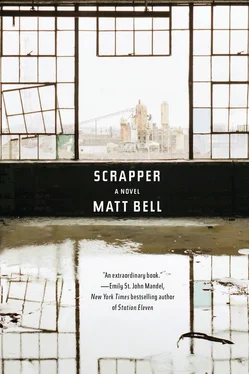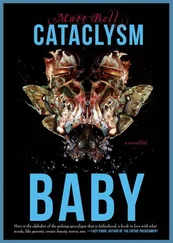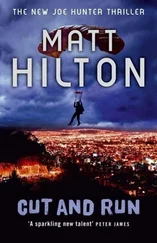Matt Bell - Scrapper
Здесь есть возможность читать онлайн «Matt Bell - Scrapper» весь текст электронной книги совершенно бесплатно (целиком полную версию без сокращений). В некоторых случаях можно слушать аудио, скачать через торрент в формате fb2 и присутствует краткое содержание. Год выпуска: 2015, Издательство: Soho Press, Жанр: Современная проза, на английском языке. Описание произведения, (предисловие) а так же отзывы посетителей доступны на портале библиотеки ЛибКат.
- Название:Scrapper
- Автор:
- Издательство:Soho Press
- Жанр:
- Год:2015
- ISBN:нет данных
- Рейтинг книги:4 / 5. Голосов: 1
-
Избранное:Добавить в избранное
- Отзывы:
-
Ваша оценка:
- 80
- 1
- 2
- 3
- 4
- 5
Scrapper: краткое содержание, описание и аннотация
Предлагаем к чтению аннотацию, описание, краткое содержание или предисловие (зависит от того, что написал сам автор книги «Scrapper»). Если вы не нашли необходимую информацию о книге — напишите в комментариях, мы постараемся отыскать её.
Scrapper
Scrapper — читать онлайн бесплатно полную книгу (весь текст) целиком
Ниже представлен текст книги, разбитый по страницам. Система сохранения места последней прочитанной страницы, позволяет с удобством читать онлайн бесплатно книгу «Scrapper», без необходимости каждый раз заново искать на чём Вы остановились. Поставьте закладку, и сможете в любой момент перейти на страницу, на которой закончили чтение.
Интервал:
Закладка:
His body expanded, screamed at its seams. The bigger the shell got the more obvious its emptiness in the mirror.
The trainers had their favorites and they hired some of the others to fight them. Harmless men with enough steel to fight but not enough to win. There was money in being such a man but so far the trainers had never approached Kelly. Like every job, you got paid for being predictable.
The house he sought would have to be deep inside the zone, at the crossing of all vectors of loneliness, abandonment, loss. He drove blocks he had scrapped, tried to recall each house’s layout of rooms and hallways, windows where neighbors might be able to see into the house. If there were neighbors. He wasn’t confident in his recall, had to check his street work, his graph-paper maps. There were too many indistinguishable houses, too many similar floor plans. He thought he required a basement but that was only parity. He could make do with any dark room, its windows blacked, its walls and floor and ceiling made dense against sound.
The sound of breaking glass carried in the silent streets but no one would come to investigate. The emptiest streets, emptier for winter. He cleared the glass with a pry bar or a hammer, climbed into small rooms cramped with drop ceilings and the pile of faded shag carpet. He tested light switches and water taps, tried to remember the qualities of the house where the boy had been held. But the boy was what had imbued the house with meaning: it wasn’t the structure but what the structure contained. Once a family, then vacancy, then a boy.
The shape of the house he picked mattered less than its proximity to others, its potential to remain undisturbed. He needed a house he could work in for an extended period of time. It would take time to make the necessary preparations, to assemble his tools, to soundproof a room, to be sure he would remain undisturbed until he finished.
It was possible to drug a man but he didn’t know how it was done. He remembered choke holds from his wrestling days, thought to put his body to use instead. He asked at the gym and the others reminded him, happily demonstrated: the hardness of his arms putting pressure on a throat caught in the crook of his elbow. The air choke, the blood choke. Compressions of the carotid arteries, the jugular veins, the upper airway. Asphyxia, cerebral ischemia, temporary hypoxic conditions. The health sciences put to harder use.
The reward dwindled but there was enough left for what he intended. He acquired a new set of tools secondhand, kept them separate from his regular equipment. In a steel toolbox heavy as a child he placed an ancient pair of pliers, a pair of scissors rusted at the hinge but sharp along the blade. A selection of blunted chisels. Hammers with splintering handles that’d hurt when he swung. Rolls of duct tape, more than he needed. He had to leave the zone to get some of what he wanted. He purchased a generator, ninety-nine cubic centimeters of engine inside a compact roll cage, twelve hundred watts, nine and a half hours of juice. He had plenty of gloves but he thought he might want a pair he had never worn. There was a welder’s mask in the same aisle and he put it in the cart. The mask wouldn’t hide his eyes but it might obscure his emotions, put distance between him and the suspect.
The suspect or the subject, how one would become another as the process progressed.
He paid cash at the counter but cash didn’t mean there wasn’t a record. There were cameras in the store, receipts stamped with the date and time. He spread out his purchases, some today, some tomorrow. He bought another LED headlamp, a handheld high-intensity discharge spotlight with a rechargeable battery. He thought maybe he might want more lights but how easy would it be to carry all of this in, to remove it after. One or two standing lights would be enough for the kind of work he was intending. All he needed was to illuminate a space the size of a man.
The boy called from downstairs and Kelly buzzed the boy in, got up from the couch to unlock the door. The boy had a key but why didn’t he use it? When the boy entered he was followed by another, taller boy — the brother, Kelly realized. The brother was still in school, seventeen, a legal juvenile. Kelly didn’t know his name, had never heard it spoken. This was one difference between a person and an abstraction. This was the way he wanted it.
This is my brother, said the boy. He wanted to meet you.
The boy’s voice was quieter, cowed in front of the brother. For the first time in weeks Kelly looked at the boy and saw a child. The boy was dressed in his blazer and tie and khakis as ever, the brother was dressed the same but wore the clothes in his own way, looser, less what was intended by the public school dress code.
I heard you’ve been spending time with him, the brother said. Taking him places. Buying him things. Letting him stay here.
Kelly said, He comes after school. He does his homework while I watch television. We share a meal and I drive him home after.
I’m curious, the brother said. Just wondering what a grown man is doing with my brother.
Nothing, Kelly said. It’s harmless. Anyway you’re the one who brings him here.
The complicity of the brother driving the boy. Of Kelly leaving the boy within the brother’s reach so he could come into Kelly’s. Kelly wanted to ask if their parents knew too. He hadn’t done anything wrong. He had saved the boy and when the boy was with him the boy was still safe. He had to keep reminding himself the brother wasn’t the boy’s real brother, not the boy’s blood. No matter what the brother said. How the brother was cruel to the boy, by the boy’s own admission. How the brother had touched the boy or else made the boy watch. How the boy told Kelly this or else it was only conjecture, something Kelly had written in the case notes.
The brother put his hand on the boy’s head and the boy flinched and Kelly knew all he needed to know. He’d known the flinch himself. Not an instinct but something learned.
I’m going to stay today too, the brother said, moving his hand to the boy’s shoulder. I want to make sure everything’s okay. If that’s all right with you.
If Kelly wanted to protect the boy he could do so right here. The brother wasn’t a man but he was the height of one, could be hurt the same.
When Kelly stood his joints cracked and popped, his strained muscles protesting every movement. He invited the boy and his brother in, pointed toward the coatrack, the couch, the kitchen. The boy knew where everything else was but if the brother wanted something he would have to ask. Kelly never smoked in front of the boy but he smoked now. The brother controlled the remote, scanned music videos, reality television, the late-afternoon reruns of some past evening’s entertainment, sports news repeating without end. On the other side of the room the boy watched the television too, his backpack unopened, his eyes glassy and absent, his quietness doubled.
The brother was here under the guise of protecting the boy from Kelly but this wasn’t the relationship the boy had revealed. The brother: Kelly thought he knew how such a person was made. It might not be the brother’s fault — not in the ultimate reveal of cause and effect — but wasn’t the brother still responsible for what he’d done, was doing. Hadn’t Kelly been responsible for the same.
THE MAN UNNAMED, THE BOY unlabeled, the toddler and baby so unwanted he did not merit three words of description, first and middle and last. This was the person they’d say you were but the real self had been obscured behind a series of labels: occupation, race, education, religion, political affiliation. The states, the conditions: you stockpiled canned goods, ate sparingly. Generic brands or worse, the white cans with the bold text, left over from foreign wars, humanitarian aid. Fingering peaches out of syrupy containers. Saving half a slice of cheese in its wrapper. Trying to remember to eat the leftovers before they got hard. Forcing yourself to eat the crust if you forgot. The crusts of bread. A sandwich only needed one slice. Everything open-faced, revealed. Water from the tap, the same glass used repeatedly. The repetition of minor acts. It wasn’t difficult to cut your own hair. You never bought your clothes new. You rarely gained or lost weight. You remembered your birthday but never on the right day. Some of your teeth were missing but you’d had the same number for several years. A stability even in decay.
Читать дальшеИнтервал:
Закладка:
Похожие книги на «Scrapper»
Представляем Вашему вниманию похожие книги на «Scrapper» списком для выбора. Мы отобрали схожую по названию и смыслу литературу в надежде предоставить читателям больше вариантов отыскать новые, интересные, ещё непрочитанные произведения.
Обсуждение, отзывы о книге «Scrapper» и просто собственные мнения читателей. Оставьте ваши комментарии, напишите, что Вы думаете о произведении, его смысле или главных героях. Укажите что конкретно понравилось, а что нет, и почему Вы так считаете.












